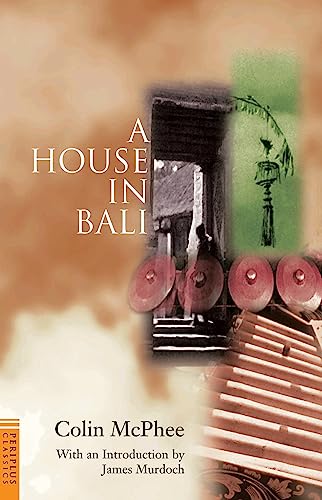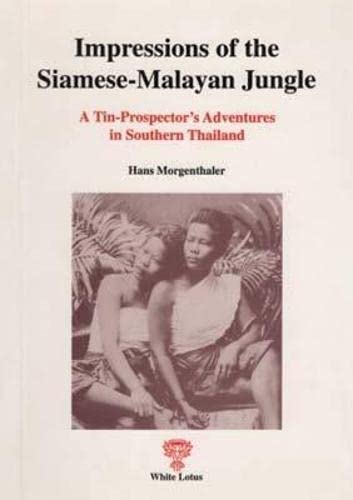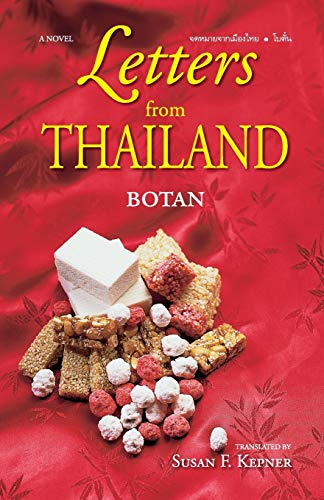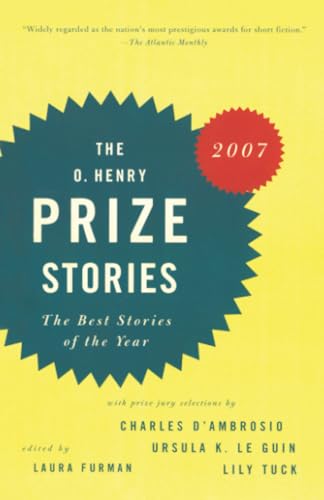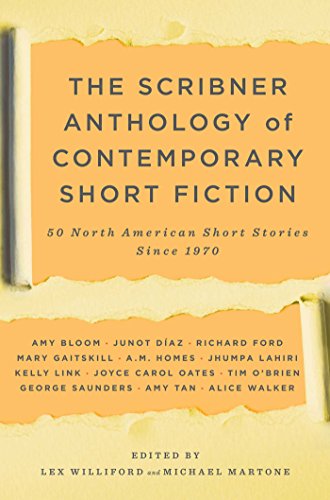 This guest post comes to us from Joan Silber. Joan Silber’s most recent book is the novel, The Size of the World, described as “magnificent fiction” by Publishers’ Weekly. She is the author of Ideas of Heaven, Finalist for the National Book Award and the Story Prize, and four other works of fiction, including Household Words, winner of the Hemingway Award. Her work appears in the 2007 O. Henry Prize Stories and in The Scribner Anthology of Contemporary Short Fiction, and has been in The New Yorker. You can click here to learn more about The Size of the World.
This guest post comes to us from Joan Silber. Joan Silber’s most recent book is the novel, The Size of the World, described as “magnificent fiction” by Publishers’ Weekly. She is the author of Ideas of Heaven, Finalist for the National Book Award and the Story Prize, and four other works of fiction, including Household Words, winner of the Hemingway Award. Her work appears in the 2007 O. Henry Prize Stories and in The Scribner Anthology of Contemporary Short Fiction, and has been in The New Yorker. You can click here to learn more about The Size of the World.
I’m addicted to travel – particularly to Asia – and once I’ve decided where to go, the next question is: what to read? What I look for first is fiction by the country’s writers. A traveler is always gazing at the windows of houses, wondering what’s going on inside – I think of fiction as giving me a way in.
Anyone going to Japan, India, and China has lots of novels to choose from – to Thailand and Indonesia, far fewer (Vietnam is somewhere in the middle, and Laos is off the map). This has to do with translators, money, and markets. But something can always be found.
Family life unfolds in novels. For Thailand, I loved Letters from Thailand, by Botan (she only uses one name). It’s actually a portrait of a Chinese family in Thailand, but it gives a full sense of how group ties work in Bangkok. For Japan, my longtime favorite is The Makioka Sisters, by Junichiro Tanizaki, an Austen-like portrayal of a family’s trouble marrying off a middle sister; the social rules kept surprising me, until I came to see that the family itself (in the 1930s) is unclear about the rules. Japan is quite different now, but the book gave me a different angle on rigidities.
 In Laos, I was thrilled when I found, in a tiny museum shop in Vientiane, a booklet of Lao Folktales: Tales of Turtles, Tigers and Toads, collected by Steve Epstein. In one of them, three adventurous flies leave home to storm the king’s plate of chicken, only to be chased by fearsome guards with fly swatters – the flies escape with new appreciation for their humble home. The joke about wry resignation in this seemed quite Lao to me later.
In Laos, I was thrilled when I found, in a tiny museum shop in Vientiane, a booklet of Lao Folktales: Tales of Turtles, Tigers and Toads, collected by Steve Epstein. In one of them, three adventurous flies leave home to storm the king’s plate of chicken, only to be chased by fearsome guards with fly swatters – the flies escape with new appreciation for their humble home. The joke about wry resignation in this seemed quite Lao to me later.
Often, I can’t help wanting the locals to see I’m hip enough to have a book by one of their writers. On a quiet beach in Lombok, the Indonesian island just east of Bali, I showed a woman vendor I was reading a novel by Pramoedya Ananta Toer, a famous writer who was banned for many years. Oh, yes, she knew his work. I was so tickled by her familiarity (on an island with limited schools) that I flashed the book again the next day. Yes, yes, I know you have it, she said. Yesterday I saw.
While reading intensifies my sense of place, it also fuses with what’s seen – I can’t always remember what I learned from observing and what I read. (Perhaps I am like that about everything.) During my stay, reading gives me the beautiful sensation that I’m an adept in whatever’s going on around me, just as reading sub-titles in a movie can convince me I know the language.
I’m not above reading books by fellow foreigners, but I try to avoid those by travelers who only passed through (what do they know that I don’t?) in favor of writers who’ve spent real time in the place. The fabulous Pico Iyer’s The Lady and the Monk was a great introduction to Kyoto, and Suketu Mehta’s Maximum City cracked open Mumbai in ways I never, never could have gotten to myself.
But what I really love is the past. I read composer Colin McPhee’s accounts of Balinese music in the 1930s, in his memoir A House in Bali, while hearing gamelan players rehearse next door to my hotel. Before I went to China, I read letters from a missionary wife in China Journal, 1889-1900, by Eva Jane Price, and began thinking about writing fiction that could draw on them. (This later became the title story in Ideas of Heaven, published by Norton in 2004). In Luoyang, a provincial city in central China, I met an older man in the square who asked if his students could practice English with me. He’d learned his very good English, it turned out, studying with missionaries from Oberlin College, direct descendants of the ones I’d read about. I was astonished – he himself thought everyone had heard of his teachers – and we corresponded for years afterward. It was very gratifying to me to send him the book, with its foil medallion saying Finalist National Book Award and thanks to him in the Acknowledgments.
 In Malaysia, I read Tales from the South China Seas, oral histories of the British in Malaya and Singapore, edited by Charles Allen, while taking the jungle railway up the spine of the peninsula. And these fed my next fictional project, a long narrative about Americans in southern Thailand in the 1920s. “Paradise,” as the tale came to be called, also relies greatly on a 1923 memoir, Impressions of the Siamese-Malayan Jungle, by a Swiss prospector named Hans Morgenthaler. “Paradise” is now a crucial section of my current novel, The Size of the World, just released by Norton. It’s a novel very much about travel, its pleasures and disturbances, and how history finds us.
In Malaysia, I read Tales from the South China Seas, oral histories of the British in Malaya and Singapore, edited by Charles Allen, while taking the jungle railway up the spine of the peninsula. And these fed my next fictional project, a long narrative about Americans in southern Thailand in the 1920s. “Paradise,” as the tale came to be called, also relies greatly on a 1923 memoir, Impressions of the Siamese-Malayan Jungle, by a Swiss prospector named Hans Morgenthaler. “Paradise” is now a crucial section of my current novel, The Size of the World, just released by Norton. It’s a novel very much about travel, its pleasures and disturbances, and how history finds us.
